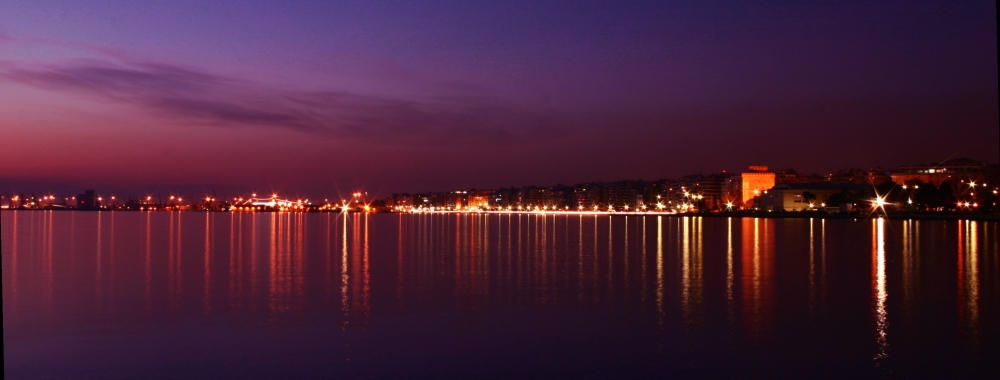The Lights of Thessalonica
 |
| The lights of Thessalonica from afar |
There are many sad stories in scripture, but one that has ever haunted me is that of Demas. We know almost nothing about him. Paul described him in favorable terms to the saints as Colossae (Colossians 4:14), and referred to him as a fellow-laborer to Philemon (Philemon 1:24). He undoubtedly spent significant time with Paul, since he was mentioned in epistles from both first and second imprisonments at Rome. We presume him to have been a missionary and faithful member of the Roman church leadership. Most significantly, we assume him to have been Paul’s trusted friend. But in the end, it seems to have gone terribly wrong.
The sad footnote on Demas is made all the more tragic by nature of it’s juxtaposition with some of Paul’s most inspiring writings. Paul’s last farewell to Timothy opens a window into Paul’s soul where we see and feel his unshakable strength and resolve; we understand his confidence in the reality of his Savior.
For I am now ready to be offered, and the time of my departure is at hand. I have fought a good fight, I have finished my course, I have kept the faith: Henceforth there is laid up for me a crown of righteousness, which the Lord, the righteous judge, shall give me at that day: and not to me only, but unto all them also that love his appearing. (2 Timothy 4:6-8)
Parenthetically, we feel Paul’s bitter disappointment in his footnote about his friend Demas . . .
Do thy diligence to come shortly unto me: For Demas hath forsaken me, having loved this present world, and is departed unto Thessalonica; Crescens to Galatia, Titus unto Dalmatia. Only Luke is with me. (2 Timothy 4:9-11)
The Greek word translated as present (G3568 – nyn) implies the here and now world. Demas’ love of the here and now was in stark contrast to Paul’s love of a better world that was promised to the faithful. It is one thing to love life, it is another to love the world so much that it crowds out God and our chances of worlds without end.
Behold, I, the Lord, who was crucified for the sins of the world, give unto you a commandment that you shall forsake the world. (D&C 53:2)
And verily I say unto thee that thou shalt lay aside the things of this world, and seek for the things of a better. (D&C 25:10)
Love not the world, neither the things that are in the world. If any man love the world, the love of the Father is not in him. (1 John 2:15)
What the draw of Thessalonica was to Demas, we will never know. But each us have our own Thessalonica. It’s bright lights and magnetism are dazzling and distracting. In each of us there is a little bit of Demas that needs to be focused and restrained. It is so easy to make a trip ‘into the city’ under false pretenses to gratify our obsessions with the present world. In the process, we find ourselves forsaking something far more important in the eternal perspective.
Though the story of Demas is tragic, it is instructive. In every instance in scripture wherein we find the name of Demas, we also find the name of Luke. We cannot sorrow for Demas without rejoicing for Luke: “Luke is with me.” He did not wander off to Thessalonica; he did not abandon Paul; he did not love the present world more than the Lord. He stands with Paul as an example of one who has fought a good fight, and kept the faith. Though I sorrow for Demas, it is my hope that I can fight a good fight, keep the faith and stand to the end with Luke and Paul and Christ.